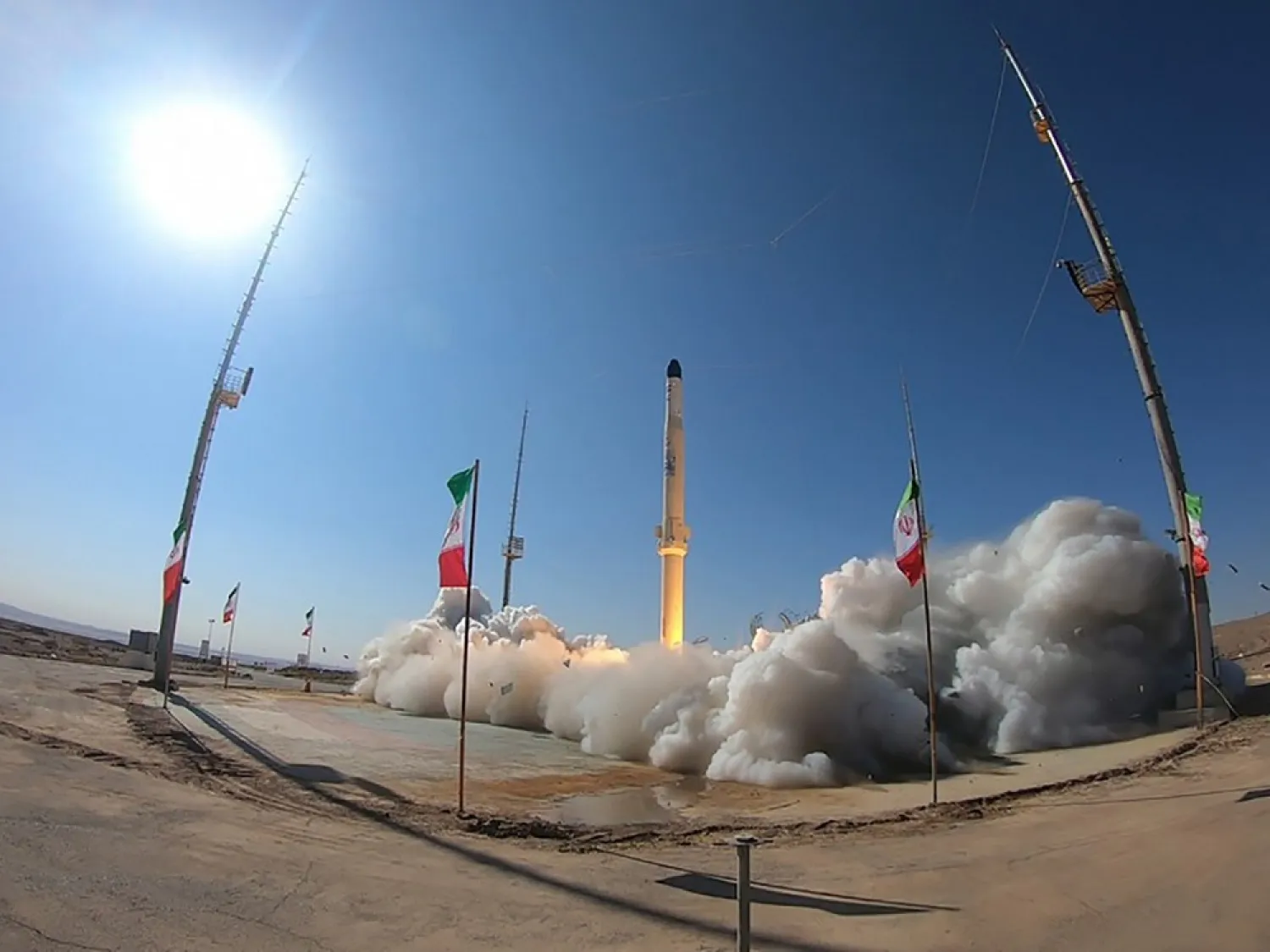Iranian state TV on Monday aired the launch of the country's newest satellite-carrying rocket, which it said was able to reach a height of 500 kilometers (310 miles).
The footage of the solid-liquid-fueled rocket showed the launch taking place during daytime in a desert environment. The report did not say when or where the launch happened.
The rocket, named Zuljanah for the horse of Imam Hussein, the grandson of the Prophet Mohammed, did not launch a satellite into orbit. The satellite carrier is 25.5 meters (84 feet) long and weighs 52 tons.
Iran says its satellite program, like its nuclear activities, is aimed at scientific research and other civilian applications. The US and other Western countries have long been suspicious of the program because the same technology can be used to develop long-range missiles.
Ahmad Hosseini, spokesman for the Defense Ministry's space department, which oversaw the launch, said the rocket is capable of carrying either a single 220-kilogram (485-pound) satellite or up to 10 smaller ones.
He said the test helped Iran achieve its “most powerful” rocket engine and that the rocket can be launched using a mobile launching pad. State TV said the three-stage rocket uses solid fuel in the first and second stages and fluid fuel in the third.
In the past, Iran has used various fluid-fuel satellite carrier rockets to put smaller devices into orbit. Last year, the paramilitary Revolutionary Guard said it used a Qased, or “Messenger,” satellite carrier to put its Noor satellite into space.
Iran often coordinates its tests of new military and scientific projects with national holidays. It will celebrate the 42nd anniversary of the revolution later in February.









